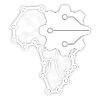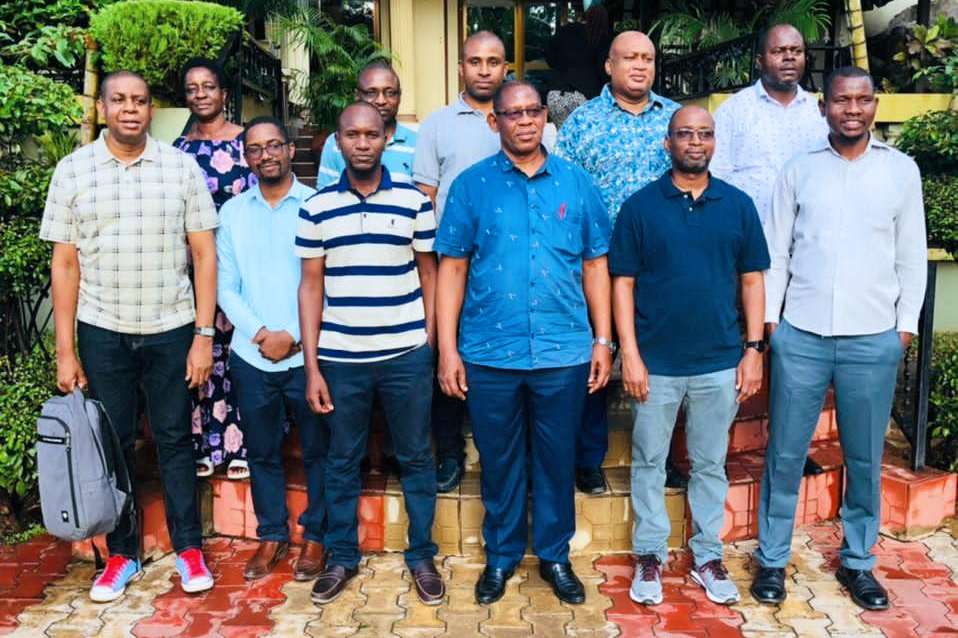Artificial Intelligence for Development Lab Project Members Capacity Building
......
Mwanza, Tanzania
Project Team Members of the Africa’s Anglophone Artificial Intelligence for Development (AI4D) Lab from the University of Dodoma (UDOM) and Nelson Mandela Africa Institution of Science and Technology (NM-AIST) met in Mwanza for five days capacity building program on project management, AI research methodology, Machine Learning Operations and Responsible AI.
UDOM and NM-AIST are participating in the establishment of Africa’s Anglophone Artificial Intelligence for Development (AI4D) Multidisciplinary Research Lab aimed at strengthening the capacity of a public university in Africa to conduct high-quality, multidisciplinary, responsible AI research and teaching by establishing a multidisciplinary and gender-inclusive Africa Artificial Intelligence for Development research laboratory. Specifically, the project has three specific objectives; firstly, to strengthen research and teaching capacity in responsible AI across Anglophone Africa through mentorship, community building and the equitable distribution of high-quality teaching and training materials, secondly, to increase understanding of how to advance responsible, multidisciplinary and gender-inclusive African AI research methodologies and training capacity for new and experienced researchers through mentoring and exploratory research; and thirdly, to explore how to support AI deployment and commercialization from academia to the private sector. The five days training was facilitated by Dr. Severine Kessy, a Senior Lecturer from University of Dar es Salaam who facilitated AI research methodology, Dr. Zaipuna Yonah, a Managing Director from Applied Engineering & ByteWorks (T) Ltd who facilitated AI project management and monitoring, Frederick Apina (https://www.linkedin.com/in/frederick-apina/) facilitated Machine Learning Operations and AI Ethics was facilitated by Essa Mohamedali (https://www.linkedin.com/in/essa-mohamedali/).
The official closure remarks were delivered by Dr. Ally Nyamawe, the Principal Investigator (PI) of the project, highlighted that, we have reached the end of the five-day training that has imparted us with skills necessary for undertaking our project. I understand that, among other issues, the training showcased the real life examples drawn from the experience to illustrate key issues in managing AI projects and addressing their related challenges. Further to that, there has been intensive and constructive discussions that went around research skills, technical aspects of AI and responsible AI. It is obvious to me that the learning experience in this training program stressed the need for more training for us and beyond. However, it is very important that we transform the knowledge we have grasped in these few days into action. May I conclude my closing remarks by expressing my sincere appreciation to the training facilitators for their valuable contribution and the efforts they devoted in making this training program successful despite the limited time we have had. I would also like to extend my gratitude to the training organizers for making up this important milestone of the project. Finally, I greatly appreciate the continued support we receive from UDOM, NM-AIST and our project sponsor, IDRC/SIDA. Thank you all once again for your engagement and I wish you all the best.
The official launching of the Africa’s Anglophone Artificial Intelligence for Development (AI4D) Multidisciplinary Research Lab project was held on 24th January 2022 by the Deputy Permanent Secretary (DPS) of the Ministry of Information, Communications and Information Technology (MICIT), on behalf of the Permanent Secretary (PS) of the MICIT. The DPS assured that the government will collaborate with both, the University of Dodoma and the Nelson Mandela African Institution of Science and Technology to address all the challenges in AI in the country that include putting an enabling environment towards successful implementation of this project. The enabling environment will include putting in place policies, frameworks and regulations on AI.
Reported by Dr. Jabhera Matogoro (Coordinator - Infrastructure and Data Ecosystem).
Disclaimer: Views expressed here are solely those gathered by the author(s) and should not necessarily be construed to be those of any organs or agencies or any other organization mentioned or discussed. This blog is released under the cc-by-sa 4.0 license, and translation into other languages is encouraged.


776 comments